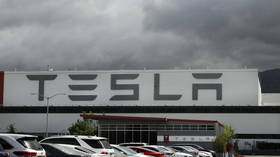The EU plans to invest €150 billion ($171 billion) in the development of Africa, European Commission President Ursula von der Leyen announced at a news conference in Senegal’s capital Dakar on Thursday. The announcement came ahead of the upcoming summit between the EU and the African Union next week.
“At the summit, investments will be at the heart of the discussions because they are the means of our shared ambition. In this area Europe is the most reliable partner for Africa and by far the most important,” von der Leyen said.
The proposal is the first regional plan under the European Union’s €300 billion ($340 billion) Global Gateway investment scheme, which aims to develop public and private infrastructure around the globe between now and 2027. The funding will reportedly come from private sector investments, as well as a number of EU financing bodies and member states. However, no further information on how exactly the money will be raised or spent has been unveiled so far.
The EU scheme is viewed as a response to China’s Belt and Road (BRI) initiative, a global infrastructure program launched back in 2013. Over the past decade, China has invested billions into the construction of roads, railways, and ports worldwide in order to set up new trade links and diplomatic ties. As of December 2021, 145 countries had signed up to China’s initiative, mostly in Asia and sub-Saharan Africa. According to the Refinitiv BRI database, the BRI currently covers 2,631 projects with a combined value of $3.7 trillion.
The EU has criticized Beijing’s plan for allegedly leaving signatory countries with huge debts. Meanwhile, von der Leyen recently called EU’s own global infrastructure plan a “true alternative” to China’s, with a goal to “create strong and sustainable links, not dependencies, between Europe and the world.”
For more stories on economy finance visit RT’s business section
Article source: https://www.rt.com/business/549026-eu-rival-china-investment-africa/?utm_source=rss&utm_medium=rss&utm_campaign=RSS







